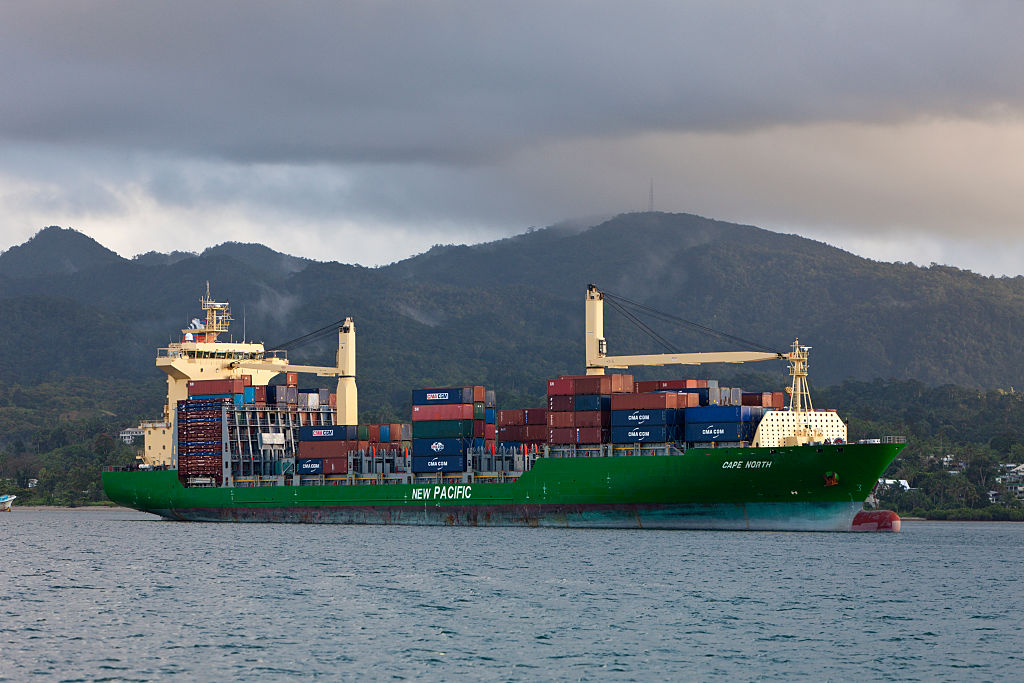
Maritime security is a broad concept that spans several domains. Traditionally it has focused on defence, state-based military threats, and the protection of national interests and sovereignty at sea.
Less attention has been paid to some of the wider aspects of maritime security that have less direct, but still significant, effects. Maritime safety is critical across all aspects of seafaring and includes regulation of shipping, port security, the safety of seafarers, search and rescue, and protection of the marine environment.
In the Pacific, maritime safety is arguably the most neglected aspect of maritime security. The region has experienced the highest per capita fatality rate in the world from maritime incidents in recent years. Ageing, poorly maintained ferries combined with overcrowding and ineffective safety and communications equipment have contributed to several serious maritime accidents. Small vessels used by coastal artisanal fishers for fishing and local transport are routinely swamped in rough weather.
Many of these tragedies could have been prevented with adequate investment in maritime safety in the Pacific, including domestic fleet and crew. Ensuring vessels are equipped with appropriate safety equipment, and that small-scale coastal fishers have access to information about weather conditions would have a significant impact on communities and improve safety for all.
Currently, Pacific island countries conduct monitoring, control and surveillance operations in offshore fisheries through their membership of the Pacific Islands Forum Fisheries Agency. The agency assists its members to protect their ocean resources by tracking all fishing boats in the region and linking them to enforcement operations, but there’s a gap in its ability to track vessels for safety purposes. There’s also a need to ensure that relevant shipping and maritime authorities have access to the right tools, particularly a maritime domain awareness (MDA) platform, to track vessels. Ship-based transceiver coverage—through the automatic identification system (AIS)—and satellite coverage are insufficient, which presents a significant challenge for maintaining MDA for safety purposes and hinders search and rescue efforts.
Australia has traditionally been a strong partner on maritime security for the Pacific region. There’s now a critical need for Australia to prioritise the maritime safety aspects of maritime security in the region and ensure they are included in programming decisions.
Australia can contribute to the development of common standards across the Pacific islands by expanding the use of MDA platforms for safety purposes. This could include working with Pacific partners to ensure the region has adequate access to satellite and AIS coverage for both MDA and weather detection and communication. Better AIS coverage, together with a satellite network and enough shore-based receivers, would significantly improve Pacific islands’ capacity to track vessels for safety purposes.
Pacific maritime safety is also impeded by the lack of appropriate legislation and enforcement capabilities. Even when a country has ratified international conventions on maritime safety, it may not have domestic legislation in place, leaving its government with no power to enforce maritime safety measures. This can lead to the continued operation of overcrowded vessels and vessels that don’t meet safety requirements.
Australia, bilaterally or through regional organisations such as the Pacific Community, can support Pacific island countries to implement the International Maritime Organization’s Model Regulations on Domestic Ferry Safety, which provide comprehensive guidelines for safety at sea, including crew safety, for Pacific countries involved in the domestic shipping sector.
Once legislation is in place, safety regimes can be improved with relatively simple measures, such as placing a maritime safety officer, supported by local police and enforcement agencies when required, to check vessels before they depart.
Australia can encourage other Pacific aid partners to have high maritime safety standards and ensure that all vessels provided through grants or other funding have safety equipment, such as AIS trackers and flotation devices, that marine safety training is conducted. This approach would greatly improve safety without burdening recipients with additional expenses.
Australia should also work to strengthen Pacific partner coordination on maritime safety issues through the existing regional architecture, including the Pacific Islands Forum and the Pacific Community, to ensure priorities are Pacific-led and contribute to strengthening regional programs under the 2050 Strategy for the Blue Pacific and the Boe Declaration, which recognise the importance of human security and enhancing MDA to ensure safety. This could involve Australia collaborating with key regional and international agencies—including the International Maritime Organization and the United Nations’ Program for Sustainable Transport Development—to support regular training and workshops on maritime safety.
In addition, there’s scope for Australia to partner with New Zealand on the Pacific Maritime Safety Programme, established in 2011 with the overall goal of ‘Pacific maritime transport that is safe, environmentally friendly and meets international requirements’. For example, replicating it in countries that aren’t yet involved would bring greater consistency to maritime safety programs across the region while ensuring support is tailored to meet the variety of needs across Pacific islands.
Where regional approaches are unable to achieve impact, Australia should look to invest in country-driven programming. Opportunities to partner with Australian institutions and organisations such as the Australian Maritime Safety Authority can be explored to investigate training placements in Australia and provision of in-country training tailored to local contexts.
Pacific island countries have long raised safety at sea as a critical issue and there’s a clear, urgent need for Australia to acknowledge its importance as an integral part of regional maritime security. Australia is a strong and committed partner on maritime security, with a wealth of experience and success. It must now work to meet the critical need to improve maritime safety to the benefit of all Pacific peoples.

